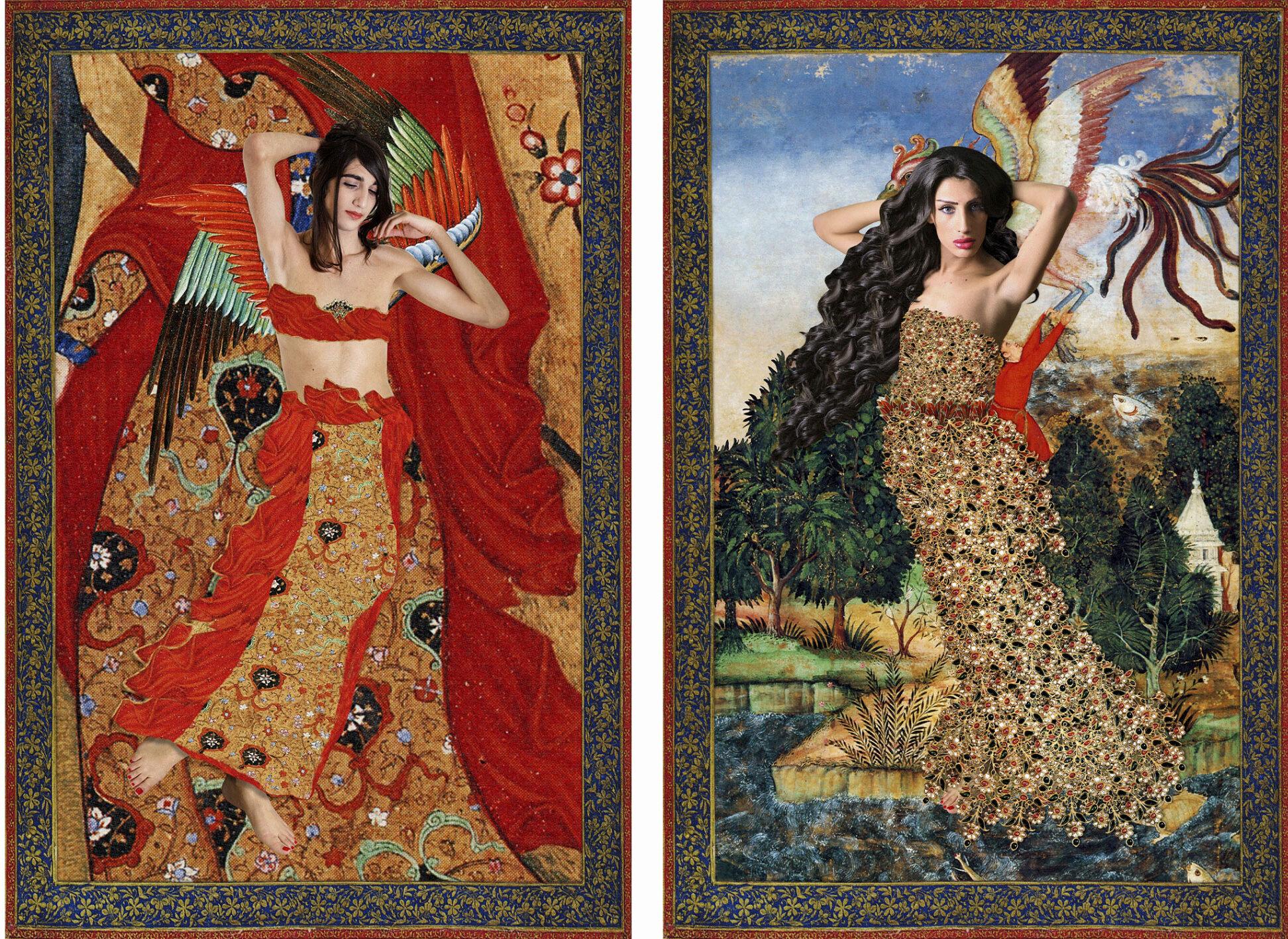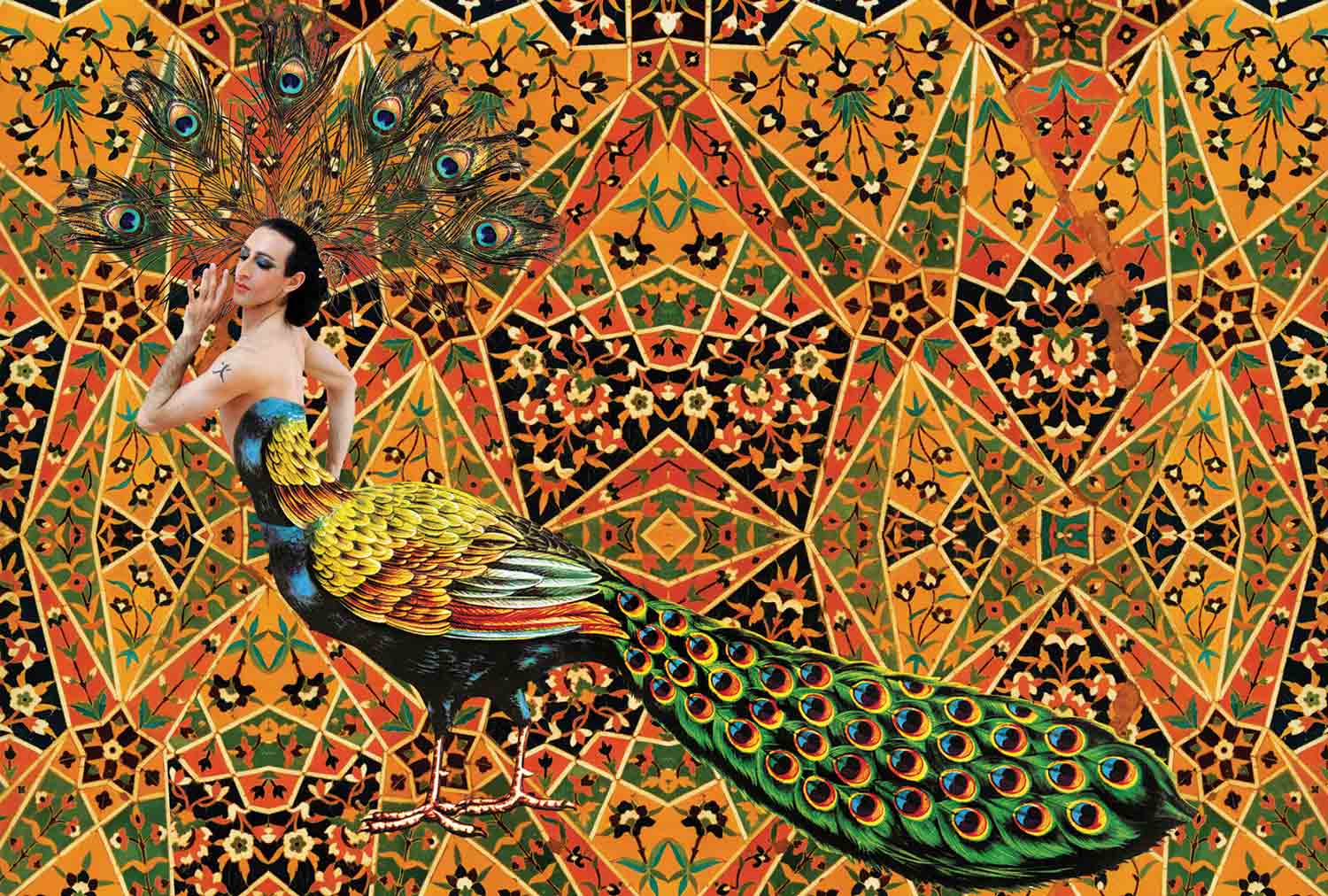Chaza Charafeddine, artist for the queer Arab world (third in a series)
Colin Stewart is a 45-year journalism veteran living in Southern…
Lebanese artist Chaza Charafeddine a pioneer in consideration of gender in art, is one of the people highlighted in the exhibit “Habibi, The Revolutions of Love” currently on display at the Arab World Institute in Paris. (Third in a three-part series).
Stay up-to-date: CLICK for a free subscription to Erasing 76 Crimes

An excerpt from an article on “Being Queer in the Arab World”, which reviews the exhibition of works by 23 artists from the Arab-Muslim world, Afghanistan and Iran:
Chaza Charafeddine, mythological trans identities
“Most of the artists exhibited are part of the new guard and are around 30 years old,” says [Élodie Bouffard, the exhibition’s curator], stopping in front of the triptych of atypical angels by Chaza Charafeddine. “She is one of the ‘old-timers’ working on these themes,” she says. For the Arab World Institute, it was impossible to deal with the issue of gender without inviting this Lebanese artist, a pioneer in the field.
“The three paintings exhibited here are taken from a solo show that largely preceded ‘Habibi’, since it dates from 2011. It was suggested to the artist by the famous gallery owner Saleh Barakat. Her series, which is much larger, was first exhibited in Beirut,” says Bouffard.

In the early 2000s, the Lebanese alternative scene was rich, but not very visible. Charafeddine was asked to do a joint project with underground performers. The series “Divine Comedy”, criticises the historical neglect and denial of the Muslim world, revealing to the general public portraits of the transgender and drag artist community in the form of mythological figures. “To illustrate her point, what better choice than her three angels?” Bouffard smiles as she looks at the pictures, one of which represents a winged woman soberly adorned with a jewel.
Although bodies, sexualities and transitions are still minority topics on the public scene in the Arab world, they can no longer be denied. “Habibi, The Revolutions of Love” tells the story of the rise of LGBTQIA+ activism in Arabic-speaking countries, which has been gaining ground since 2011. A plurality of identities opposed to the prevailing conservatism – and daring to claim their existence on the artistic battlefield.




